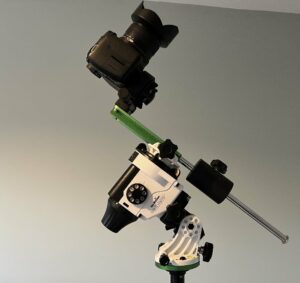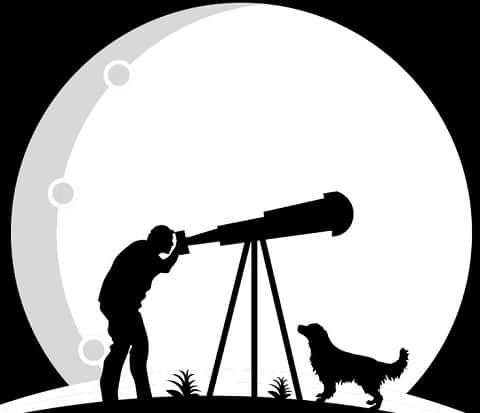As an experienced astrophotographer, I’ve spent countless nights under the stars, capturing the celestial wonders that light up the night sky. The UK, with its diverse landscapes and dedicated dark sky preserves, offers some of the best stargazing locations in the world – clear skies permitting!
Here, I’ll share with you the top spots and some insider tips to make the most of your astrophotography adventures.
Table of Contents
Brecon Beacons National Park (Bannau Brycheiniog)
Nestled in the heart of Wales, the Brecon Beacons National Park is a stargazer’s paradise. As a designated Dark Sky Reserve, the area is protected against light pollution, ensuring that the skies remain as dark as possible. The park’s rugged terrain, with its high peaks and open moorland, provides a dramatic foreground for night sky photography.
Top Tip: For the best astrophotography results, head to the Usk Reservoir or the visitor center at Libanus. The high altitude and unobstructed horizons offer perfect conditions for capturing the Milky Way.

South Downs National Park
The rolling hills of the South Downs National Park stretch across southeastern England and are a testament to the beauty of the British countryside. The park’s status as an International Dark Sky Reserve guarantees excellent stargazing opportunities. The chalky cliffs and grasslands provide a unique backdrop for night-time photography.
Top Tip: Try shooting from the top of Ditchling Beacon or Devil’s Dyke. These high vantage points allow for expansive views of the sky, with less atmospheric interference.
Exmoor National Park
Exmoor National Park, located in the southwest of England, is another Dark Sky Reserve that offers exceptional stargazing. The park’s varied landscapes, including its rugged coastline, dense woodlands, and open moorland, create an array of compositions for astrophotographers.
Top Tip: Head to Holdstone Hill, County Gate, or Brendon Two Gates for some of the darkest skies and best chances to photograph the elusive Andromeda Galaxy or Orion Nebula.
Kielder Observatory, Northumberland
Situated in the Northumberland International Dark Sky Park, Kielder Observatory is a beacon for astrophotographers. The observatory itself is an architectural marvel, and the surrounding dark skies are some of the darkest in England. The lack of light pollution ensures that even the faintest of celestial objects can be seen and photographed.
Top Tip: Participate in one of the observatory’s events or workshops to hone your astrophotography skills. The expert guidance you’ll receive, combined with Kielder’s pristine skies, will elevate your night-sky images.
Snowdonia National Park (Eryri National Park)
Snowdonia in Wales is not just a haven for hikers but also a sanctuary for stargazers. With rugged landscapes dominated by the towering peaks of Snowdon and the surrounding mountains, this national park offers some of the most picturesque night skies in the UK.
Top Tip: For a truly epic shot, set up your camera near Llyn y Dywarchen or Llynnau Cregennen. The reflections of the stars and the Milky Way in the still waters add a magical touch to your astrophotography.
Astrophotography Tips for UK Stargazers
Now that you know where to go, let’s talk about how to capture the best images of the night sky:
- Plan Your Shoot: Utilize apps and websites to monitor the lunar calendar and weather conditions. Aim for new moon phases and clear skies for optimal stargazing.
- Arrive Early: Reach your chosen location before sunset. This will give you time to scout the area, set up your equipment, and allow your eyes to adjust to the darkness.
- Use the Right Gear: A sturdy tripod and a camera capable of long exposures are essential. A wide-angle lens with a fast aperture (f/2.8 or lower) will enable you to capture more light and detail.
- Manual Settings are Key: Set your camera to manual mode. Use a wide aperture, a slow shutter speed (15-30 seconds), and a high ISO (1600-3200) to start, then adjust according to the conditions.
- Focus Manually: Autofocus often fails in low light conditions. Use live view mode to zoom in on a bright star and manually focus your lens for a sharp shot.
- Experiment with Composition: Incorporate interesting foreground elements to add depth to your photos. Silhouettes of trees, mountains, or structures can create a sense of scale and wonder.
- Take Plenty of Shots: The more photos you take, the better your chances of capturing a stunning image. Try different settings and compositions to seewhat works best.
- Capture the Foreground Separately: For a well-exposed foreground, take a separate shot during twilight and blend it with your night sky image during post-processing.
- Use Light Painting: If you’re shooting a foreground subject, briefly illuminate it with a soft light source during the exposure to bring out the details without overpowering the stars.
- Stay Warm and Safe: Dress in layers, bring warm drinks, and let someone know where you’ll be, especially if you’re venturing into remote areas at night.
- Be Patient: Astrophotography requires patience. Long exposures and waiting for the perfect celestial moment are part of the experience.
- Post-Processing: Use software like Adobe Lightroom or Photoshop to enhance your images. Adjust the white balance, bring out the colors of the Milky Way, and reduce noise to make your stars stand out.
Remember, astrophotography is as much about the experience as it is about the final image. Enjoy the tranquility of the night, the beauty of the stars, and the thrill of capturing a moment of cosmic significance.
As you explore these UK stargazing locations, you’ll not only improve your astrophotography skills but also gain a deeper appreciation for the night sky. Whether you’re a seasoned photographer or just starting, the UK’s dark skies offer a canvas for you to create your own celestial masterpieces. Happy shooting!

